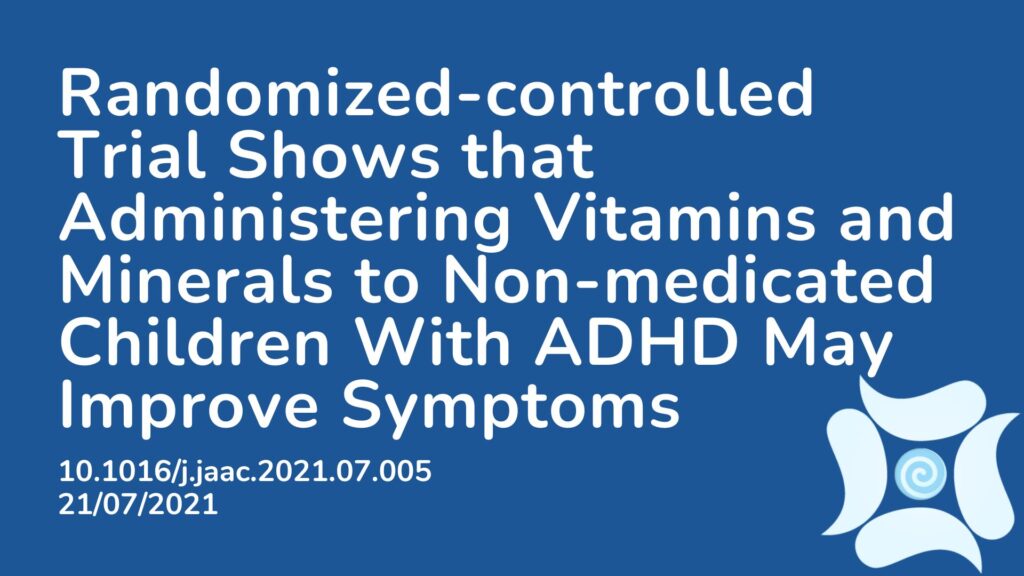Summary:
The purpose of this paper was to evaluate a North American pediatric population to see whether vitamins and minerals have an impact on attention-deficit/hyperactivity disorder (ADHD) and irritability. The study was an 8 week randomized controlled trial with a placebo group in children aged 6-12 years that have ADHD yet are not medicated for it. The symptoms that were being monitored were oppositional defiance, mood dysregulation and conflict. The results showed that of the 135 children randomized, the group that were taking micronutrients were three times more likely to show an improvement in symptoms, compared to those in the placebo group that were not taking micronutrients.
Abstract:
Objective: To evaluate whether micronutrients (vitamins/minerals) benefit attention-deficit/hyperactivity disorder (ADHD) and irritability in a North American pediatric sample. Method: A 3-site, 8-week, placebo-controlled, randomized clinical trial of micronutrients was conducted in nonmedicated children aged 6 to 12 years with ADHD and at least 1 impairing irritability symptom by parent report on the Child and Adolescent Symptom Inventory−5 (CASI-5). A priori−defined primary outcomes were Clinical Global Impression−Improvement (CGI-I) (CGI-I of 1 or 2 = treatment responder) and parent-rated CASI-5 composite score of ADHD, oppositional defiant, disruptive mood dysregulation, and peer conflict symptoms, including impairment scores. Results: Of 135 randomized (mean age 9.8 years), 126 youths (93%) comprised the modified intention-to-treat population. Blinding was maintained. For the CGI-I, 54% of the micronutrient and 18% of the placebo group were responders (risk ratio = 2.97, 97.5% CI = 1.50, 5.90, p < .001). CASI-5 composite scores improved significantly for both groups (p < .01), with a mean change of −0.31 (95% CI = −0.39, −0.23) in the micronutrient group and a mean change of −0.28 (95% CI = −0.38, −0.19) in the placebo group. However, the between-group difference was not significant (mean change = −0.02; 97.5% CI = −0.16, 0.12, effect size = 0.07, p = .70). The micronutrient group grew 6 mm more than the placebo group (p = .002). No serious adverse events or clinically significant changes from baseline in blood and urine tests occurred. Conclusion: Micronutrients showed global benefit over placebo by blinded clinician rating, but not by parent-report CASI-5 composite rating in a population with ADHD and irritability. Micronutrients showed greater height growth. Micronutrients were well tolerated, and the majority of participants adhered to the number of capsules prescribed. This randomized controlled trial replicates safety and efficacy reported for ADHD in 2 smaller trials of a similar formula containing all vitamins and known essential minerals in amounts between the Recommended Dietary Allowance and Upper Tolerable Intake Level.
Article Publication Date: 21/07/2021
DOI: 10.1016/j.jaac.2021.07.005




